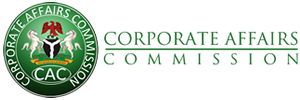Covishield (Oxford-AstraZeneca COVID-19 vaccine)
ChAdOx1 nCoV- 19 Corona Virus Vaccine (Recombinant)Covishield is a vaccine for preventing coronavirus disease 2019 (COVID-19) in people aged 18 years and older. COVID-19 is caused by SARS-CoV-2 virus.
Covishield is made up of another virus (of the adenovirus family) that has been modified to contain the gene for making a protein from SARS-CoV-2.
Covishield does not contain the virus itself and cannot cause COVID-19. Detailed information about this vaccine is available in the product information.Covishield vaccine is given as two injections, usually into the muscle of the upper arm. The second dose should be given between 4 and 12 weeks after the first dose.
Arrangements for the supply of the vaccine will be the responsibility of National Primary Healthcare Development Agency (NPHCDA). For more information about using Covishield vaccine, see the package leaflet or consult a healthcare professional.Covishield works by preparing the body to defend itself against COVID-19. It is made up of another virus (adenovirus) that has been modified to contain the gene for making the SARS- CoV-2 spike protein. This is a protein on the surface of the SARS-CoV-2 virus which the virus needs to enter the body’s cells.
Once it has been given, the vaccine delivers the SARS-CoV-2 gene into cells in the body. The cells will use the gene to produce the spike protein. The person’s immune system will then recognize this protein as foreign and produce antibodies and activate T cells (white blood cells) to attack it.
If, later on, the person comes into contact with SARS-CoV-2 virus, their immune system will recognize it and be ready to defend the body against it.
The adenovirus in the vaccine cannot reproduce and does not cause disease.Combined results from four Phase 2/3 clinical trials in the United Kingdom, Brazil, South Africa and India showed that Covishield was safe and effective at preventing COVID-19 in people from 18 years of age. These studies involved around twenty-four thousand (24,000) people altogether. Half received the vaccine and half were given a control injection, either a dummy injection or another non-COVID vaccine. People did not know if they had been given the test vaccine or the control injection.
The Agency based its assessment of how well the vaccine worked on the results from study COV002 (conducted in the UK) and study COV003 (conducted in Brazil) which had more than fifty (50) COVID-19 cases occurring in each study. The other two studies had fewer than six (6) COVID-19 cases occurring in each, which was not enough to measure the preventive effect of the vaccine. In addition, as the vaccine is to be given as two standard doses, and the second dose should be given between 4 and 12 weeks after the first, the Agency concentrated on results involving people who received this standard regimen.
These showed a 59.5% reduction in the number of symptomatic COVID-19 cases in people given the vaccine (64 of 5,258 got COVID-19 with symptoms) compared with people given control injections (154 of 5,210 got COVID-19 with symptoms). This means that the vaccine demonstrated around a 60 – 82% efficacy in the clinical trials.
Most of the participants in these studies were between 18 and 55 years of age. There were not enough results in older participants (over 55 years old) to provide a figure for how well the vaccine will work in this group. However, protection is expected, given that an immune response is seen in this age group and based on experience with other vaccines. As there is reliable information on safety in this population, NAFDAC, WHO and EMA’s scientific experts considered that the vaccine can be used in older adults. More information is expected from ongoing studies, which include a higher proportion of elderly participants.There were no additional side effects in the 345 people who received Covishield in the trial and had previously had COVID-19. There were not enough data from the trial to conclude on how well Covishield works for people who have already had COVID-19.The impact of vaccination with Covishield on the spread of the SARS-CoV-2 virus in the community is not yet known. It is not yet known the extent to which vaccinated people may be able to carry and spread the virus.It is not currently known how long protection given by Covishield lasts. Those people vaccinated in the clinical trials will continue to be followed for one (1) year to gather more information on the duration of protection.Covishield is not currently recommended for use in children. The company has a plan to conduct trials involving children at a later stage.There are limited data on immunocompromised people (people with weakened immune systems). Although immunocompromised people may not respond as well to the vaccine, there are no particular safety concerns. Immunocompromised people can still be vaccinated as they may be at higher risk from COVID-19.Preliminary animal studies do not show any harmful effects in pregnancy, however data on the use of Covishield during pregnancy are very limited. Although there are no studies on breast- feeding, no risk from breast-feeding is expected.
The decision on whether to use the vaccine in pregnant women should be made in close consultation with a healthcare professional after considering the benefits and risks.People who already know they have an allergy to one of the components of the vaccine listed in section 6 of the package leaflet should not receive the vaccine.
Allergic reactions (hypersensitivity) have been seen in people receiving the vaccine. As for all vaccines, Covishield should be given under close medical supervision, with the appropriate medical treatment available in case of allergic reactions. People who have a severe allergic reaction when they are given the first dose of Covishield should not receive the second dose.The clinical trial included people of different ethnicities and genders. The efficacy was maintained across genders and ethnic groups.The most common side effects with Covishield in the trials were usually mild or moderate and got better within a few days after vaccination. The most common side effects are pain and tenderness at the injection site, headache, tiredness, muscle pain, general feeling of being unwell, chills, fever, joint pain and nausea. Vomiting, diarrhoea, decreased appetite, dizziness, sweating, abdominal pain and also rash occurred.
Allergic reactions have occurred in people receiving the vaccine. As for all vaccines, Covishield should be given under close supervision with appropriate medical treatment available.Covishield offers a good level of protection against COVID-19 which is a critical need in the current pandemic. The main trials showed that the vaccine has around 60-82% efficacy. Most side effects are mild to moderate in severity and are gone within a few days.
The NAFDAC decided that Covishield’s benefits are greater than its risks and it can be authorized for use in Nigeria.
Covishield has been given ‘Emergency Use Authorization’ which has conditions attached to it. This means that there is more evidence to come about the vaccine (see below), which the company is required to provide. The Agency will review any new information that becomes available and this overview will be updated as necessary.Since Covishield has been given Emergency Use Authorization, the company that markets the vaccine will continue to provide results from the clinical trials, which are ongoing. These trials and additional studies will provide information on how long protection lasts, including against new variants of the virus, how well the vaccine prevents severe COVID-19, how well it protects older people, immunocompromised people, children and pregnant women, and whether it prevents asymptomatic cases.
In addition, independent studies of COVID-19 vaccines coordinated by WHO will also give more information on the vaccine’s long-term safety and benefit in the general population.
The company will also carry out studies to provide additional assurance on the pharmaceutical quality and testing of the vaccine as the manufacturing continues to be scaled up.Recommendations and precautions to be followed by healthcare professionals and patients for the safe and effective use of Covishield have been included in the summary of product characteristics and the package leaflet.
A Risk Management Plan for Covishield is also in place and contains important information about the vaccine’s safety, how to collect further information and how to minimize any potential risks.
Safety measures will be implemented for Covishield in line with the NAFDAC safety monitoring plan for COVID-19 vaccines to ensure that new safety information is rapidly collected and analyzed.
As for all medicines, data on the use of Covishield will be continuously monitored. Suspected side effects reported with Covishield will be carefully evaluated and any necessary action taken to protect patients.SARS-CoV-2 viruses undergo evolution. Some new virus variants may be associated with higher transmissibility, disease severity, risk of reinfection, or a change in antigenic composition resulting in lower vaccine effectiveness.
Preliminary analyses have shown a slightly reduced vaccine effectiveness of Covishield against B1.1.1.7 in the V002 trial in the United Kingdom which is associated with only a limited reduction in neutralizing antibody. Preliminary analyses from the Phase 1/2a trial (COV005) in South Africa indicate a marked reduction in vaccine effectiveness against mild and moderate disease due to B1.351 based on a small sample size and substantial loss of neutralizing antibody activity. This study was designed to assess efficacy against disease of any severity, but the small sample size did not allow a specific assessment of vaccine efficacy against severe COVID-19. Indirect evidence is compatible with protection against severe COVID-19; however, this remains to be demonstrated in ongoing clinical trials and post-implementation evaluations.
In view of this, NAFDAC currently recommends the use of Covishield vaccine according to the Prioritization Roadmap. NAFDAC will continue to monitor the situation; as new data become available, recommendations will be updated accordingly.Covishield received Emergency Use Authorization valid throughout Nigeria on 18 February 2021. This overview is dated 02-2021.AstraZeneca and Oxford University (AZOU) originally developed the ChAdOx1 recombinant adenoviral vector vaccine to be used for prevention of COVID-19 disease. AZOU gave the license of its vaccine to Serum Institute of India PVT Ltd (SIIPL) to manufacture this vaccine at commercial scale.
SIIPL is the largest vaccine manufacturer in the world and the company got the license by signing manufacturing agreement with AstraZeneca (AZ)/Oxford University to manufacture this vaccine. SIIPL gave the vaccine the trade name COVISHIELDTM .
COVISHIELDTM is the result of a cooperation and a technology transfer from AstraZeneca – University of Oxford to SIIPL.
Serum Institute of India Pvt. Ltd. is now the world’s largest vaccine manufacturer by number of doses produced and sold globally (more than 1.5 billion doses) which includes Polio vaccine as well as Diphtheria, Tetanus, Pertussis, Hib, BCG, r-Hepatitis B, Measles, Mumps and Rubella vaccines. Vaccines manufactured by the Serum Institute are accredited by the World Health Organization, Geneva and are being used in around 170 countries across the globe in their national immunization programs, saving millions of lives throughout the world.
Both COVISHIELD™ manufactured by Serum Institute of India Pvt Ltd and COVID-19 Vaccine AstraZeneca manufactured by AstraZeneca are the same vaccine – ChAdOx1 nCoV- 19 Corona Virus Vaccines (Recombinant).
COVISHIELDTM was granted Emergency Use Listing (EUL) by the World Health Organisation on 15th February, 2021 and it is one of the listed vaccines under the COVAX Facility.References
https://www.who.int/publications/i/item/WHO-2019-nCoV-vaccines-SAGE_recommendation- AZD1222-2021.1
https://www.ema.europa.eu/en/documents/overview/covid-19-vaccine-astrazeneca-epar-medicine- overview_en.pdf
Covid-19 Safety Updates






